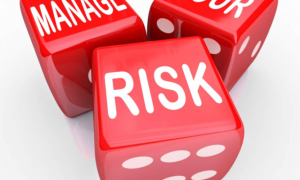Sylvia Key | October 17, 2023 | Updated on: February 1st, 2024

However, it’s crucial for online casinos to continuously improve and innovate self-exclusion programs, collaborate with regulatory authorities, and raise awareness to ensure that as many players as possible can benefit from this vital resource. Responsible gaming should always remain at the forefront of the online gambling industry, with self-exclusion as a cornerstone of these efforts.
Top Casinos with Self-Exclusion
AU$10000 Bonus
+ 200 Free Spins
99% Payout
Rating: 4/5
99% Payout
Min Deposit: AU$10
AU$3000 Bonus
+ 100 Free Spins
98% Payout
Rating: 5/5
98% Payout
Min Deposit: AU$20
AU$5500 Bonus
+ 125 Free Spins
99% Payout
Rating: 5/5
99% Payout
Min Deposit: AU$10
AU$6750 Bonus
+ 250 Free Spins
98% Payout
Rating: 4/5
98% Payout
Min Deposit: AU$30
AU$1850 Bonus
+ 500 Free Spins
98% Payout
Rating: 4/5
97% Payout
Min Deposit: AU$10
AU$2000 Bonus
+ 200 Free Spins
97% Payout
Rating: 4/5
97% Payout
Min Deposit: AU$20
AU$750 Bonus
+ 200 Free Spins
98% Payout
Rating: 3/5
98% Payout
Min Deposit: AU$20
AU$2500 Bonus
+ 250 Free Spins
98% Payout
Rating: 4/5
98% Payout
Min Deposit: AU$10
AU$6000 Bonus
+ 250 Free Spins
98% Payout
Rating: 5/5
98% Payout
Min Deposit: AU$15
AU$3000 Bonus
+ 300 Free Spins
98% Payout
Rating: 4/5
98% Payout
Min Deposit: AU$20
AU$2000 Bonus
+ 200 Free Spins
98% Payout
Rating: 4/5
98% Payout
Min Deposit: AU$10
AU$5000 Bonus
+ 75 Free Spins
99% Payout
Rating: 4.7/5
99% Payout
Min Deposit: AU$10
AU$7500 Bonus
+ 350 Free Spins
98% Payout
Rating: 5/5
98% Payout
Min Deposit: AU$30
AU$1670 Bonus
+ 600 Free Spins
98% Payout
Rating: 4.7/5
98% Payout
Min Deposit: AU$20
AU$7500 Bonus
+ 100 Free Spins
99% Payout
Rating: 5/5
99% Payout
Min Deposit: AU$20
AU$5000 Bonus
+ 300 Free Spins
98% Payout
Rating: 3/5
98% Payout
Min Deposit: AU$30
AU$4000 Bonus
+ 400 Free Spins
98% Payout
Rating: 3/5
Code: SKY125
Min Deposit: AU$30
AU$5000 Bonus
+ 300 Free Spins
98% Payout
Rating: 3/5
98% Payout
Min Deposit: AU$30
AU$3000 Bonus
+ 200 Free Spins
98% Payout
Rating: 3/5
98% Payout
Min Deposit: AU$20
AU$3000 Bonus
+ 225 Free Spins
98% Payout
Rating: 3/5
98% Payout
Min Deposit: AU$30
AU$750 Bonus
+ 100 Free Spins
98% Payout
Rating: 3/5
98% Payout
Min Deposit: AU$20
AU$4000 Bonus
+ 300 Free Spins
98% Payout
Rating: 4.7/5
98% Payout
Min Deposit: AU$30
AU$2500 Bonus
97% Payout
Rating: 4.8/5
98% Payout
Min Deposit: AU$25
AU$7000 Bonus
+ 200 Free Spins
98% Payout
Rating: 3/5
98% Payout
Min Deposit: AU$25
AU$3000 Bonus
+ 200 Free Spins
98% Payout
Rating: 3/5
98% Payout
Min Deposit: AU$30
AU$900 Bonus
+ 250 Free Spins
98% Payout
Rating: 4.7/5
98% Payout
Min Deposit: AU$15
AU$10000 Bonus
+ 200 Free Spins
98% Payout
Rating: 3/5
98% Payout
Min Deposit: AU$20
AU$750 Bonus
+ 200 Free Spins
98% Payout
Rating: 4/5
98% Payout
Min Deposit: AU$30
AU$8000 Bonus
+ 700 Free Spins
99% Payout
Rating: 3/5
99% Payout
Min Deposit: AU$30
AU$6000 Bonus
+ 200 Free Spins
99% Payout
Rating: 4.9/5
99% Payout
Min Deposit: AU$10
AU$1200 Bonus
+ 300 Free Spins
98% Payout
Rating: 3/5
98% Payout
Min Deposit: AU$15
AU$750 Bonus
+ 200 Free Spins
98% Payout
Rating: 4/5
98% Payout
Min Deposit: AU$15
AU$10,000 Bonus
+ 100 Free Spins
98% Payout
Rating: 3/5
98% Payout
Min Deposit: AU$30
AU$4000 Bonus
+ 150 Free Spins
99% Payout
Rating: 3/5
98% Payout
Min Deposit: AU$30
AU$750 Bonus
+ 200 Free Spins
98% Payout
Rating: 3/5
98% Payout
Min Deposit: AU$30
AU$7000 Bonus
+ 250 Free Spins
97% Payout
Rating: 3/5
97% Payout
Min Deposit: AU$10
AU$7500 Bonus
+ 550 Free Spins
98% Payout
Rating: 4.8/5
98% Payout
Min Deposit: AU$30
AU$6000 Bonus
+ 200 Free Spins
97% Payout
Rating: 3/5
97% Payout
Min Deposit: AU$10
AU$4000 Bonus
+ 475 Free Spins
98% Payout
Rating: 5/5
98% Payout
Min Deposit: AU$30
AU$10000 Bonus
+ 100 Free Spins
98% Payout
Rating: 4/5
98% Payout
Min Deposit: AU$30
AU$3000 Bonus
+ 200 Free Spins
98% Payout
Rating: 3/5
98% Payout
Min Deposit: AU$20
AU$4500 Bonus
+ 225 Free Spins
98% Payout
Rating: 3/5
98% Payout
Min Deposit: AU$30
AU$10000 Bonus
+ 500 Free Spins
98% Payout
Rating: 3/5
98% Payout
Min Deposit: AU$30
AU$10,000 Bonus
+ 100 Free Spins
99% Payout
Rating: 3/5
99% Payout
Min Deposit: AU$30
AU$5000 Bonus
+ 100 Free Spins
98% Payout
Rating: 3/5
98% Payout
Min Deposit: AU$20
AU$500 Bonus
+ 100 Free Spins
98% Payout
Rating: 5/5
98% Payout
Min Deposit: AU$25
AU$1500 Bonus
+ 500 Free Spins
98% Payout
Rating: 3/5
98% Payout
Min Deposit: AU$20
AU$2500 Bonus
+ 250 Free Spins
98% Payout
Rating: 3/5
98% Payout
Min Deposit: AU$20
AU$10,000 Bonus
+ 100 Free Spins
98% Payout
Rating: 3/5
98% Payout
Min Deposit: AU$20
AU$1500 Bonus
+ 100 Free Spins
99% Payout
Rating: 3/5
99% Payout
Min Deposit: AU$20
AU$4000 Bonus
+ 150 Free Spins
98% Payout
Rating: 3/5
98% Payout
Min Deposit: AU$20
AU$9000 Bonus
+ 200 Free Spins
97% Payout
Rating: 3/5
97% Payout
Min Deposit: AU$10
160% Bonus
+ 40 Free Spins
98% Payout
Rating: 4/5
98% Payout
Min Deposit: AU$20
AU$10,000 Bonus
+ 200 Free Spins
98% Payout
Rating: 3/5
98% Payout
Min Deposit: AU$30
AU$1500 Bonus
+ 200 Free Spins
98% Payout
Rating: 3/5
98% Payout
Min Deposit: AU$30
AU$7500 Bonus
+ 110 Free Spins
98% Payout
Rating: 3/5
98% Payout
Min Deposit: AU$10
250% Bonus
+ 50 Free Spins
98% Payout
Rating: 4/5
98% Payout
Min Deposit: AU$20
AU$1000 Bonus
+ 100 Free Spins
98% Payout
Rating: 3/5
98% Payout
Min Deposit: AU$10
AU$10000 Bonus
+ 200 Free Spins
98% Payout
Rating: 3/5
98% Payout
Min Deposit: AU$20
AU$1650 Bonus
+ 250 Free Spins
98% Payout
Rating: 3/5
98% Payout
Min Deposit: AU$20
AU$3,000 Bonus
+ 350 Free Spins
98% Payout
Rating: 3/5
98% Payout
Min Deposit: AU$30
AU$8000 Bonus
+ 250 Free Spins
98% Payout
Rating: 3/5
98% Payout
Min Deposit: AU$20
$600 Bonus
+ Free Spins
98% Payout
Rating: 3/5
98% Payout
Min Deposit: AU$
AU$5000 Bonus
+ 300 Free Spins
99% Payout
Rating: 3/5
99% Payout
Min Deposit: AU$10
AU$1250 Bonus
+ 75 Free Spins
98% Payout
Rating: 3/5
98% Payout
Min Deposit: AU$20
AU$500 Bonus
+ 100 Free Spins
98% Payout
Rating: 3/5
98% Payout
Min Deposit: AU$15
AU$1200 Bonus
+ 75 Free Spins
99% Payout
Rating: 3/5
99% Payout
Min Deposit: AU$10
AU$30,450 Bonus
+ 100 Free Spins
98% Payout
Rating: 3/5
98% Payout
Min Deposit: AU$20
AU$5000 Bonus
+ 100 Free Spins
97.6% Payout
Rating: 3/5
97.6% Payout
Min Deposit: AU$20
AU$4500 Bonus
+ 225 Free Spins
98% Payout
Rating: 3/5
98% Payout
Min Deposit: AU$30
AU$10000 Bonus
+ 150 Free Spins
99% Payout
Rating: 4/5
98% Payout
Min Deposit: AU$30
AU$1,200 Bonus
0 Free Spins
98% Payout
Rating: 3/5
98% Payout
Min Deposit: AU$26
AU$3000 Bonus
100 Free Spins
98% Payout
Rating: 3/5
98% Payout
Min Deposit: AU$15
AU$1000 Bonus
0 Free Spins
96% Payout
Rating: 3/5
96% Payout
Min Deposit: AU$26
AU$1,077 Bonus
0 Free Spins
97% Payout
Rating: 4/5
97% Payout
Min Deposit: AU$26
AU$1000 Bonus
0 Free Spins
97% Payout
Rating: 4/5
97% Payout
Min Deposit: AU$26
AU$800 Bonus
0 Free Spins
95% Payout
Rating: 3/5
95% Payout
Min Deposit: AU$26
AU$1500 Bonus
0 Free Spins
96% Payout
Rating: 3.5/5
96% Payout
Min Deposit: AU$26
AU$2500 Bonus
+ 200 Free Spins
98% Payout
Rating: 3/5
98% Payout
Min Deposit: AU$15
AU$1000 Bonus
+ 100 Free Spins
98% Payout
Rating: 5/5
98% Payout
Min Deposit: AU$20
AU$1500 Bonus
+ 25 Free Spins
98% Payout
Rating: 4.8/5
98% Payout
Min Deposit: AU$20
AU$1,500 Bonus
$5 Casino Bonus
96% Payout
Rating: 4/5
96% Payout
Min Deposit: AU$25
AU$1,500 Bonus
$25 Bingo Bonus
95% Payout
Rating: 3/5
95% Payout
Min Deposit: AU$25
AU$1000 Bonus
+ 250 Free Spins
99% Payout
Rating: 3/5
99% Payout
Min Deposit: AU$20
AU$2000 Bonus
+ 90 Free Spins
98% Payout
Rating: 4/5
98% Payout
Min Deposit: AU$20
AU$3000 Bonus
+ 100 Free Spins
97% Payout
Rating: 3/5
97% Payout
Min Deposit: AU$20
AU$15000 Bonus
+ 225 Free Spins
98% Payout
Rating: 3/5
98% Payout
Min Deposit: AU$20
AU$2000 Bonus
+ 200 Free Spins
97% Payout
Rating: 4.7/5
98% Payout
Min Deposit: AU$10
300% Bonus
+ 250 Free Spins
98% Payout
Rating: 3/5
98% Payout
Min Deposit: AU$10
AU$38000 Bonus
+ 300 Free Spins
98% Payout
Rating: 4.8/5
98% Payout
Min Deposit: 0.0001 BTC
AU$1500 Bonus
+ 200 Free Spins
97% Payout
Rating: 3/5
97% Payout
Min Deposit: AU$15
AU$4000 Bonus
+ 100 Free Spins
97% Payout
Rating: 4.8/5
97% Payout
Min Deposit: AU$10
AU$1200 Bonus
+ 50 Free Spins
98% Payout
Rating: 4.7/5
97% Payout
Min Deposit: AU$10
AU$2000 Bonus
+ 100 Free Spins
98% Payout
Rating: 4/5
98% Payout
Min Deposit: AU$15
AU$7777 Bonus
98% Payout
Rating: 4.7/5
98% Payout
Min Deposit: AU$10
AU$5000 Bonus
96% Payout
Rating: 4.5/5
98% Payout
Min Deposit: AU$20
AU$3000 Bonus
96% Payout
Rating: 3/5
96% Payout
Min Deposit: AU$20
AU$4000 Bonus
+ 300 Free Spins
98% Payout
Rating: 4.5/5
98% Payout
Min Deposit: AU$15
AU$800 Bonus
+ 120 Free Spins
98% Payout
Rating: 4.8/5
98% Payout
Min Deposit: AU$20
AU$8888 Bonus
+ 350 Free Spins
97% Payout
Rating: 4.8/5
97% Payout
Min Deposit: AU$20
AU$2500 Bonus
+ 500 Free Spins
97% Payout
Rating: 4.8/5
97% Payout
Min Deposit: AU$20
AU$675 Bonus
+ 250 Free Spins
97% Payout
Rating: 3/5
97% Payout
Min Deposit: AU$20
750% Bonus
+ 110 Free Spins
97% Payout
Rating: 4.8/5
97% Payout
Min Deposit: AU$20
AU$750 Bonus
+ 110 Free Spins
97% Payout
Rating: 4.8/5
97% Payout
Min Deposit: AU$20
AU$750 Bonus
+ 110 Free Spins
98% Payout
Rating: 4.8/5
98% Payout
Min Deposit: AU$25
AU$7500 Bonus
+ 100 Free Spins
98% Payout
Rating: 3/5
98% Payout
Min Deposit: AU$30
AU$3000 Bonus
+ 350 Free Spins
97% Payout
Rating: 3/5
97% Payout
Min Deposit: AU$30
AU$12500 Bonus
+ 55 Free Spins
97% Payout
Rating: 3/5
97% Payout
Min Deposit: AU$30
Why Self-Exclusion is Important
We look at why self-exclusion is important and promotes the following:
- Responsible Gaming: Self-exclusion is a key component of responsible gaming, encouraging individuals to set limits and take control of their gambling behaviour.
- Harm Reduction: For those who struggle with problem gambling, self-exclusion offers an immediate solution to curb impulsive actions and potentially devastating financial consequences.
- Social Responsibility: Online casinos that provide self-exclusion options are demonstrating a commitment to social responsibility and player well-being.
Implementation of Self-Exclusion
Self-exclusion programs differ in duration and implementation. Here are the key aspects to consider:
- Duration: Self-exclusion periods can vary from weeks to months or even indefinitely, depending on the individual’s preferences and severity of the problem.
- Exclusivity: Participants can choose to exclude themselves from specific casinos or from all gambling operators within a jurisdiction.
- Enforcement: Online casinos typically enforce self-exclusion by blocking the individual’s access to their platform and sending regular reminders about the exclusion.
- Support: Most programs offer support resources for individuals during and after self-exclusion, including information on gambling addiction counselling and helplines.


The Role of Online Casinos
Online casinos play a pivotal role in facilitating self-exclusion for their customers. While the motivation behind such measures may vary—ranging from regulatory requirements to genuine concern for player well-being—these are some ways online casinos contribute to responsible gaming:
- User-Friendly Tools: gambling platforms provide user-friendly self-exclusion tools that allow players to set their limits easily.
- Access to Support: Online casinos often offer information and links to support services, such as Gamblers Anonymous and counselling organizations.
- Data Analytics: Online casinos can track player behaviour, identifying potential signs of addiction and encouraging self-exclusion where necessary.
- Collaboration with Regulators: Many online casinos collaborate with regulatory authorities to ensure that self-exclusion programs are consistent and effective.
Challenges of Self-Exclusion Programs
Self-exclusion programs, while valuable in promoting responsible gambling, come with several challenges and limitations:
- Enforcement and Evasion: Players may attempt to circumvent self-exclusion measures by creating new accounts, using VPNs, or accessing unregulated gambling sites. Enforcement can be difficult, especially when dealing with online casinos that operate internationally.
- Lack of Universal Standards: Self-exclusion programs vary in terms of duration, exclusivity, and accessibility across different jurisdictions and gambling operators. Lack of universal standards can lead to confusion and inconsistencies.
- Apathy and Lack of Awareness: Not all gamblers are aware of self-exclusion programs, and some may be apathetic or reluctant to use them due to the stigma surrounding gambling addiction. Education and outreach efforts are needed to increase awareness and encourage participation.
- Effectiveness: While self-exclusion can be a valuable tool, its effectiveness in preventing problem gambling is not guaranteed. Some individuals may continue to gamble even after self-exclusion, especially if they lack adequate support or if the underlying causes of their addiction are not addressed.
- Access to Unregulated Sites: Players who are excluded from licensed and regulated gambling operators may still find ways to access unregulated or offshore gambling websites, which do not always adhere to responsible gaming practices.
- Support and Counseling Availability: Self-excluded individuals may not always have access to the necessary support and counseling services. Adequate mental health resources and addiction treatment programs should be readily available to help those in need.
- Periodic Reevaluation: The duration of self-exclusion is often determined when a participant enrolls, which may not account for changing circumstances. Periodic reevaluation of the exclusion and the option to extend or terminate it should be considered.
- Lack of Incentives for Operators: Some operators may not have sufficient incentives to enforce self-exclusion rigorously, as they may perceive the loss of a customer as a financial disadvantage.
- Privacy and Data Security: Participants’ personal information and gambling history are typically collected when they enter self-exclusion programs. Ensuring the privacy and security of this sensitive data is crucial to protect individuals from potential harm, such as identity theft.
- Follow-Up and Monitoring: Effective follow-up and monitoring of self-excluded individuals can be resource-intensive. Some programs may lack the resources to track and support participants adequately.Top of Form
Tips for Players to Self-Exclude
Self-excluding from gambling activities is an essential step for individuals who recognize that they have a gambling problem or want to take a break from gambling. Here are some tips on how players can self-exclude:
- Understand the Process: Before you start the self-exclusion process, it’s essential to understand what it entails, including the duration of the exclusion, which casinos it applies to, and the consequences of self-exclusion.
- Use Online Tools: Many online casinos provide user-friendly tools for self-exclusion within your account settings. Look for the self-exclusion or responsible gaming sections of the website or app.
- Contact Customer Support: Reach out to the customer support team of the online casino where you wish to self-exclude. Most reputable gambling operators will have dedicated support for self-exclusion inquiries.
- Set Your Limits: If self-exclusion isn’t the right option for you, consider using other responsible gaming tools offered by online casinos, such as setting deposit limits, session time limits, or reality checks.
- Duration and Exclusivity: Decide on the duration of your self-exclusion period. It can range from weeks to months or even indefinitely. Additionally, choose whether you want to exclude yourself from a specific casino site.
- Stick to Your Decision: Once you’ve initiated self-exclusion, it’s crucial to commit to it. Avoid the temptation to create new accounts or seek alternative gambling options during the exclusion period.
- Seek Support: While self-excluded, consider seeking support from counseling services or organizations dedicated to helping individuals with gambling addiction, such as Gamblers Anonymous or therapists specializing in addiction.
- Periodic Reevaluation: After your self-exclusion period ends, take time to reassess your gambling habits and whether you’re ready to return to gambling. You can choose to extend the exclusion if necessary.
- Stay Informed: Keep yourself informed about responsible gaming and gambling addiction resources. Knowledge about the risks and support available is essential for maintaining control over your gambling habits.
- Utilize Blocking Software: In addition to self-exclusion, you can install blocking software on your devices to prevent access to gambling websites. This can provide an extra layer of protection.





























































































































